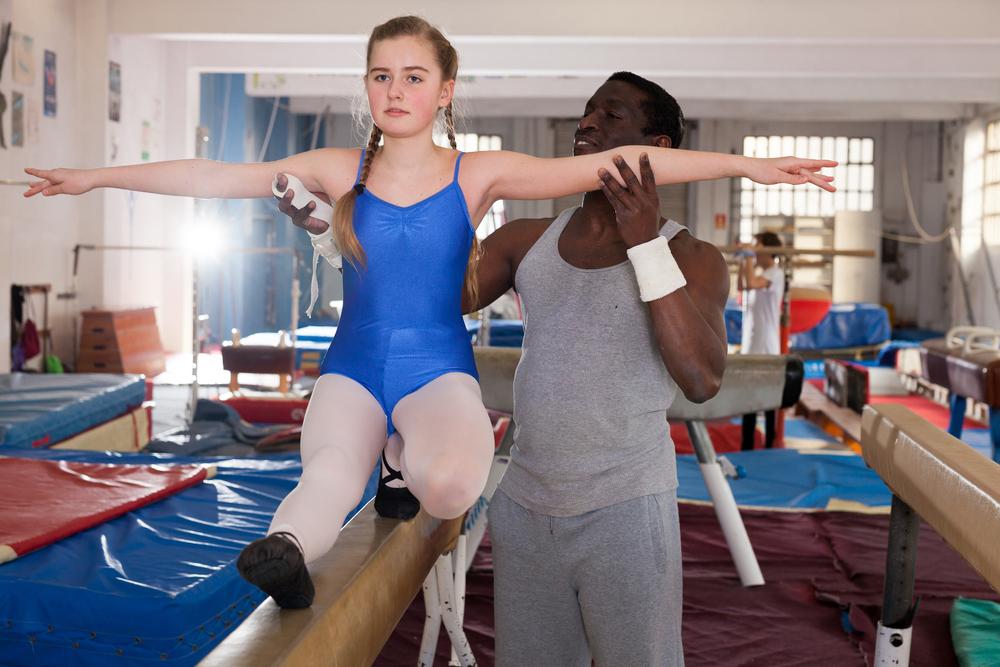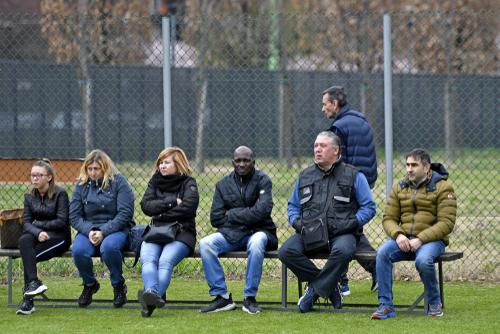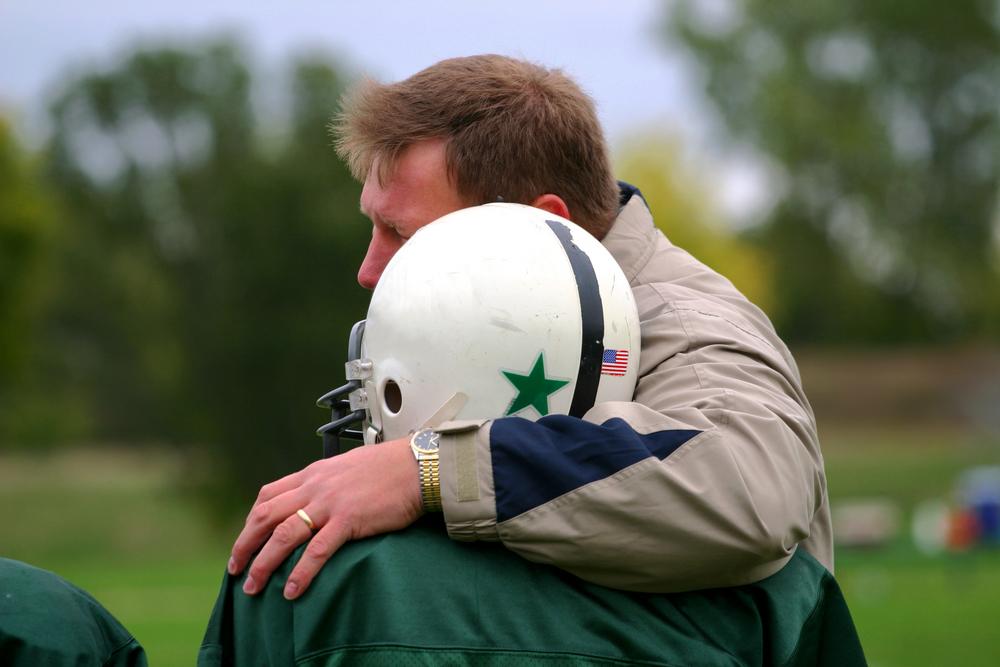 As a coach, it’s tempting to put almost all your focus on the game itself…teaching skills that help an athlete make it to the finish line first or score the winning point. But coaching shouldn’t be just about the game, even if the goal is to build athletes who have what it takes to continue to the college and pro ranks.
As a coach, it’s tempting to put almost all your focus on the game itself…teaching skills that help an athlete make it to the finish line first or score the winning point. But coaching shouldn’t be just about the game, even if the goal is to build athletes who have what it takes to continue to the college and pro ranks.
Keisha Caine Bishop, a certified life coach and the powerhouse behind the Lyles Brothers Sports Foundation, reminds coaches that prioritizing values, not team plays, is critical to developing healthy, happy athletes who are as mentally fit as they are physically fit. Here, Bishop shares her best advice for creating value-driven athletes who are set up for success later in life.
Help athletes discover their best all-around selves
The best athletes are the ones with strong foundations in mental and physical health. That balance could mean keeping their grades up and getting enough sleep, in addition to showing up and giving their all at practice. Often, if something is lacking in another aspect of their lives, it will translate to the playing field. “I help people see which patterns they have that aren’t serving them, and which ones are helping them achieve their goals,” say Bishop. “I won’t tell someone what to do, I’m just pointing out patterns of behavior and letting them make changes on their own.”
Prioritize behavior over talent
 An athlete who’s willing to put in the work at practice every day may eventually outpace the athlete who shows natural talent, but often skips practice or doesn’t work hard during practices. “I think too often, we put the gift of the athlete over the values. We let kids who have this natural talent on the field get away with bad behaviors,” Bishop says. “For instance, when my son was young, we put him in track practice —but he yelled at the coach. It was clear that emotionally, he wasn’t ready to be there. Some parents might have left him in, but we wanted him to gain that emotional maturity before he could go back.”
An athlete who’s willing to put in the work at practice every day may eventually outpace the athlete who shows natural talent, but often skips practice or doesn’t work hard during practices. “I think too often, we put the gift of the athlete over the values. We let kids who have this natural talent on the field get away with bad behaviors,” Bishop says. “For instance, when my son was young, we put him in track practice —but he yelled at the coach. It was clear that emotionally, he wasn’t ready to be there. Some parents might have left him in, but we wanted him to gain that emotional maturity before he could go back.”
Remember you’re building whole humans
As a coach for young athletes, your role in developing them as humans, not just players, is much larger than you may realize. “Youth sport and helping young people develop character as well as talent lays the foundation for adulthood,” Bishop says. “Don’t put talent above developing integrity and character for your athletes.”
Help athletes see their patterns
 “Often, people have patterns that may not be clear to them, but are clear to an outside observer,” Bishop says. “In my life coaching practice, I’ll have people look back at things they’ve said in the past, and often, that’s how they can begin to understand their own behavior patterns.” While you likely can’t take notes on every athlete, if you notice that one athlete is always making excuses after a bad game or practice, jot down notes of things they say for a few weeks and then have a discussion about it. Hearing their own words repeated back may help them become more aware of negative patterns and help them change those actions.
“Often, people have patterns that may not be clear to them, but are clear to an outside observer,” Bishop says. “In my life coaching practice, I’ll have people look back at things they’ve said in the past, and often, that’s how they can begin to understand their own behavior patterns.” While you likely can’t take notes on every athlete, if you notice that one athlete is always making excuses after a bad game or practice, jot down notes of things they say for a few weeks and then have a discussion about it. Hearing their own words repeated back may help them become more aware of negative patterns and help them change those actions.
Most athletes don’t want to be told what to do
Many TrueSport Experts have talked about the importance of asking questions rather than offering advice, and Bishop agrees wholeheartedly. When trying to help an athlete lean into values or adjust their behavior, it’s tempting to tell them exactly what to do. But avoid that temptation and ask questions instead. “With my sons, I would ask questions like, ‘Why did you run your race like that?’ ‘What do you think about the results?’ ‘How do you think that worked out?,'” she says. “They would take a while to process those questions but would come back with ideas on how to improve instead of getting defensive.”
Understand your athletes
“To be a good coach, you have to figure out what motivates your athletes,” says Bishop. “Some people are motivated by helping others. Some people are motivated by personal gain. Some people are motivated by recognition. It takes a lot of time and effort to coach like that, but it’s worth it to support the development of good players and people.”
Remind parents to stay parents
 While some coaches complain that parents are too involved as ‘second coaches,’ Bishop believes that an even bigger problem is when parents become ‘fans’ of their child. “It hurts my heart when I see parents become fans instead of helping their children stay grounded during the pursuit of success,” she says. “Young athletes need to have a safe place to come to all the time, where they can be nurtured as a person, not a star athlete. Sometimes, parents let their kids get away with stuff because they’re naturally talented, but without strong values, they fall prey to some of life’s pitfalls that could have been avoided.”
While some coaches complain that parents are too involved as ‘second coaches,’ Bishop believes that an even bigger problem is when parents become ‘fans’ of their child. “It hurts my heart when I see parents become fans instead of helping their children stay grounded during the pursuit of success,” she says. “Young athletes need to have a safe place to come to all the time, where they can be nurtured as a person, not a star athlete. Sometimes, parents let their kids get away with stuff because they’re naturally talented, but without strong values, they fall prey to some of life’s pitfalls that could have been avoided.”
Strong values lead to success later
Bishop’s sons are proof that value-driven training and sport can lead to a glittering athletic career, as well as personal maturity and mental wellness. Rather than behaving recklessly as young pros, the two brothers brought Bishop on board as their manager, and she helped them budget, save for retirement, and eventually form the Lyles Brothers Sports Foundation together to help other young athletes.
______________________
Takeaway
While teaching skills and drills is key for any coach, it has become apparent that developing athletes who are as mentally well as they are physically developed is just as important. These tips will help coaches develop athletes who are successful in both sport and life.



